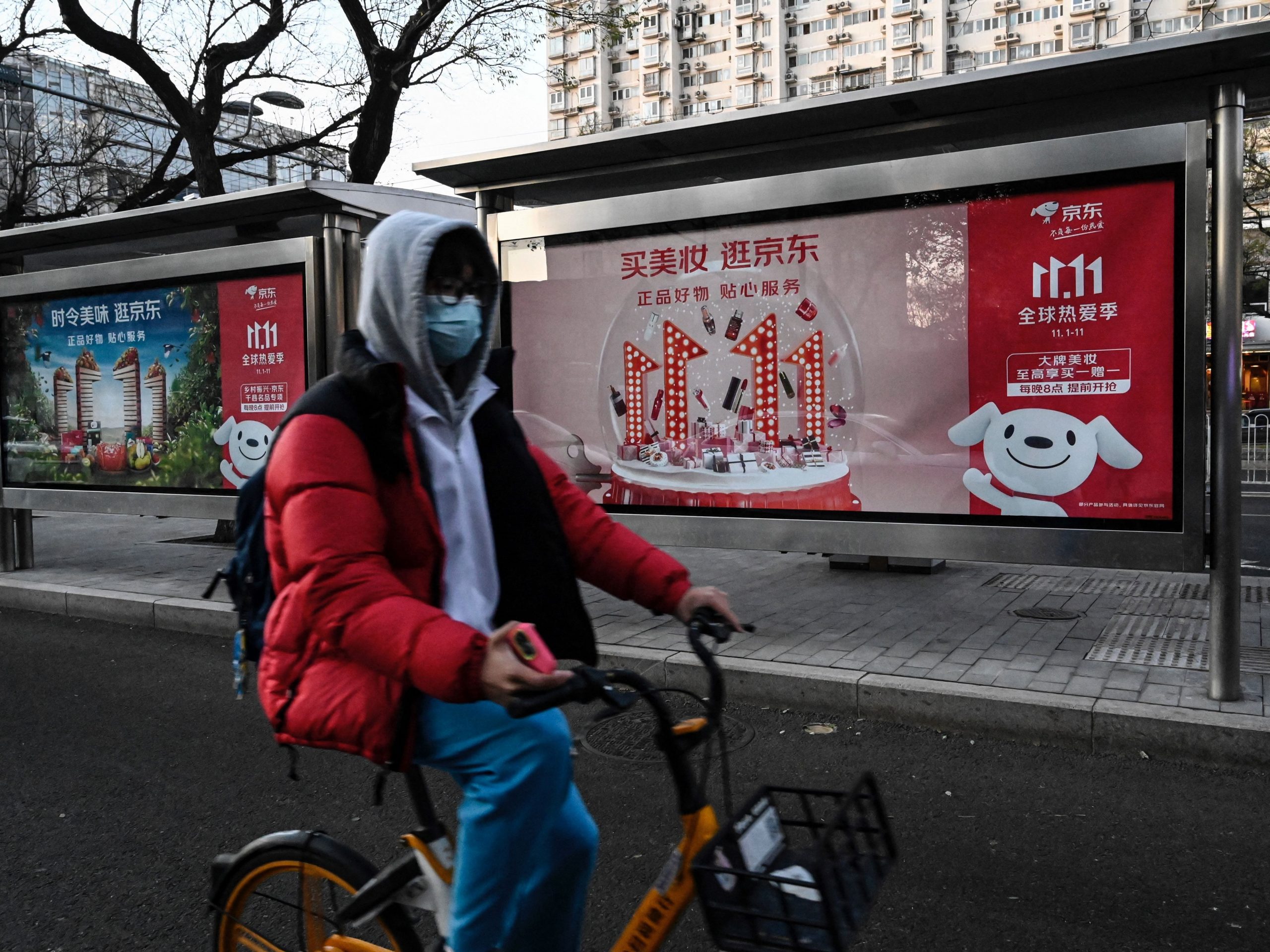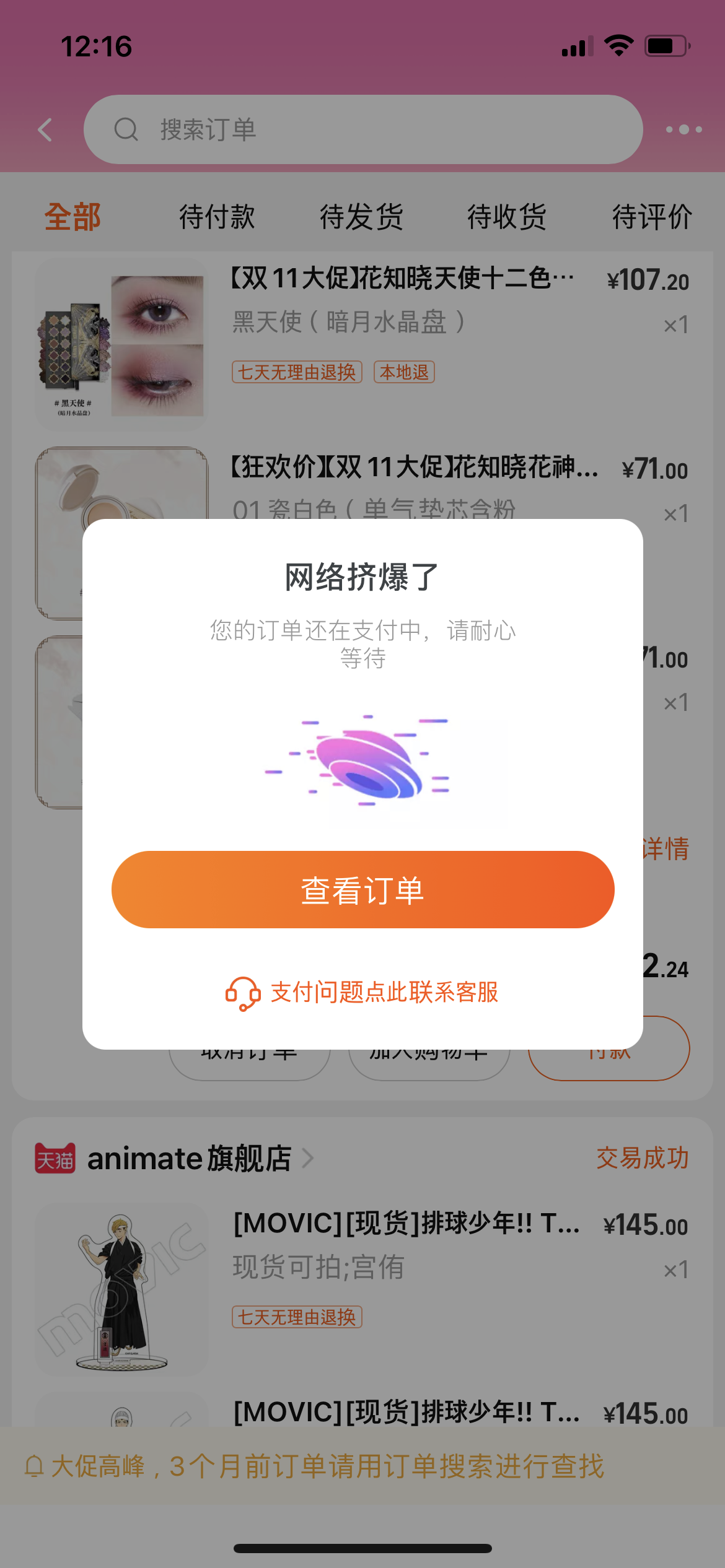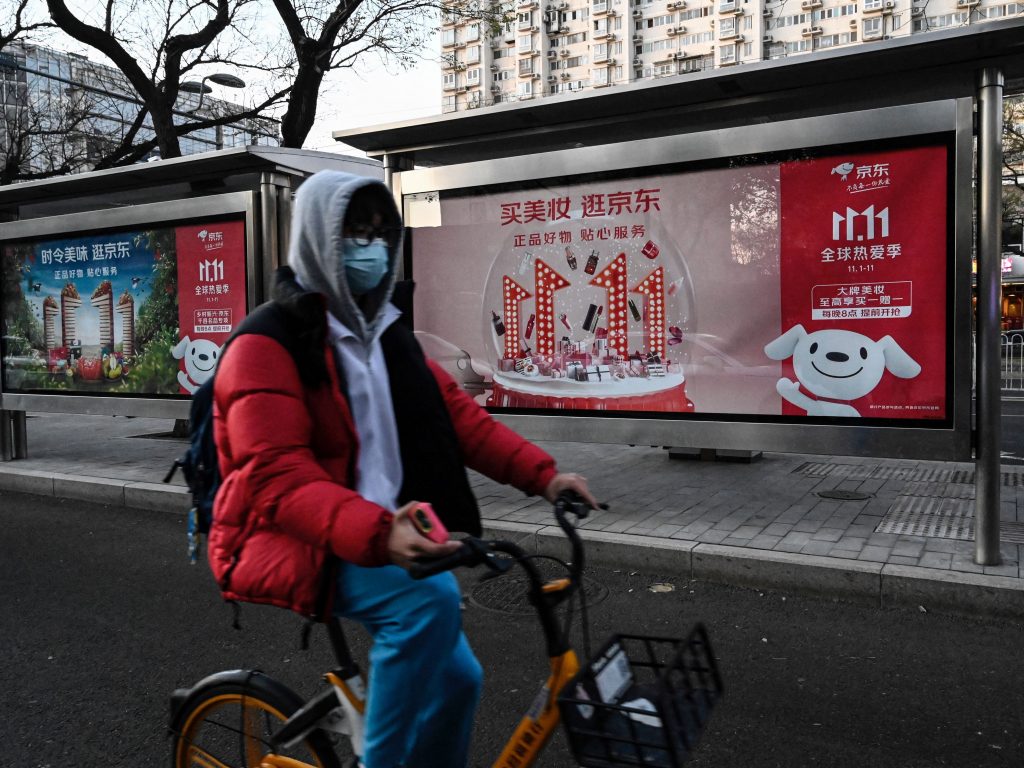
Jade Gao/AFP/Getty Images
- Alibaba said 382 brands already topped sales of 100 million Chinese yuan ($15.6 million) a piece between November 1 and 12:45 a.m. on November 11.
- Citi forecasts Alibaba's total sales for the event to hit a record 578 billion Chinese yuan ($90 billion.)
- But retailers are playing it low key this year due to Beijing's crackdown on everything from tech to wealth.
China's Singles' Day – the biggest shopping festival in the world – has gotten off to a robust start, with indications that sales may top last year's record even as retailers are trying to lie low due to Beijing's tech crackdown.
Ecommerce giant Alibaba raked in $74 billion in sales for the shopping festival last year. Alibaba started the one-day retail event in 2009, but has since stretched out the duration of the festival, starting it on November 1 this year. The event now culminates in a blowout sale on Singles' Day on November 11.
This year, 382 brands have each already topped sales of 100 million Chinese yuan ($15.6 million) between midnight on November 1 and 12:45 a.m. on November 11, said Alibaba in an online post. Among those brands are Apple, L'Oreal, and Huawei, per Alibaba.
Apple sold 300 million yuan ($47 million) worth of iPhones in the first second of sales on November 1, said Alibaba in its blog.
And one day before this year's event ends, forty brands have already managed to achieve at least a 10-fold increase in sales from last year's festival, added Alibaba.
The sales event ends tonight, so there are no cumulative figures yet. But Alibaba's Taobao shopping platform - China's version of Amazon - was inundated with orders in the early hours of Thursday. Its website slowed to a crawl, with a message indicating it was swamped.

Cheryl Teh/Insider
Some analysts are expecting Alibaba to report record sales again this year on the back of strong online spending due to a resurgence of COVID-19 in China.
Citi is forecasting Alibaba's total sales in the 11 days of this year's shopping festival to rise 15% on-year to 578 billion Chinese yuan ($90 billion,) per CNN.
Competitor JD.com is reporting sales of 311.4 billion Chinese yuan ($48.6 billion) from 8 p.m. October 31 to 2:09 p.m. on November 11, the ecommerce giant told Insider. This surpasses the 271.5 billion Chinese yuan ($42.4 million) JD.com made in sales from November 1 to November 11 last year.
Consultancy firm Bain also found in a survey of 3,000 Chinese consumers that up to 52% plan to increase their spending in the shopping festival this year.
Despite the enthusiastic spending in the world's second-largest economy, retailers are playing it low-key this year due to Beijing's crackdown on everything from tech to wealth, as President Xi Jinping touts a more equal society with "common prosperity."
Alibaba has done away with flashy counters splashing real-time sales figures this year. It's also championing sustainability, highlighting energy-saving appliances, and introducing a package recycling program, according to the company's blog.
China's regulators are not backing down from their crackdown. Just last month, authorities called on ecommerce platforms to curb marketing spam ahead of Singles' Day, according to a notice from China's Ministry of Industry and Information Technology.
